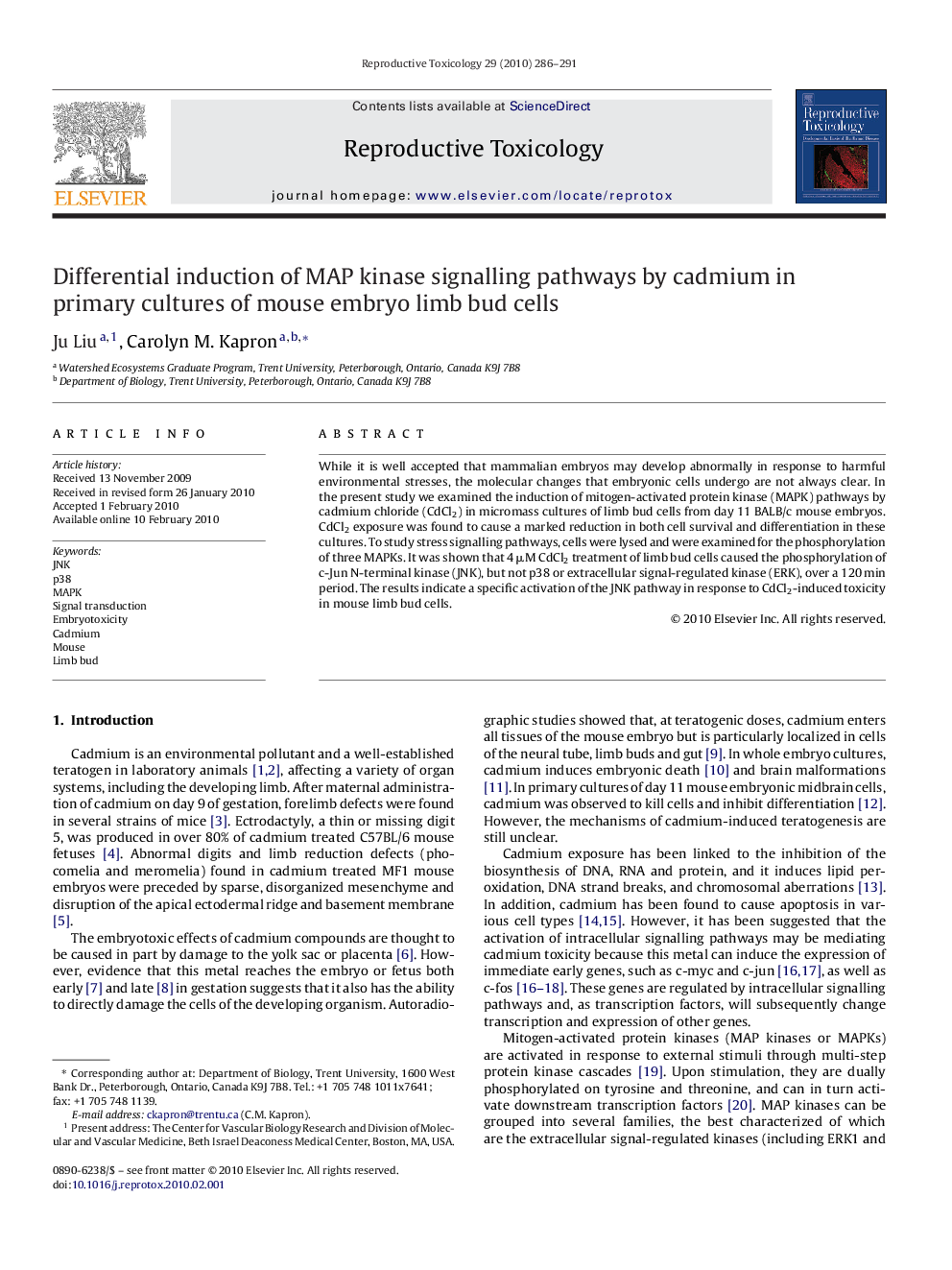| Article ID | Journal | Published Year | Pages | File Type |
|---|---|---|---|---|
| 2594434 | Reproductive Toxicology | 2010 | 6 Pages |
While it is well accepted that mammalian embryos may develop abnormally in response to harmful environmental stresses, the molecular changes that embryonic cells undergo are not always clear. In the present study we examined the induction of mitogen-activated protein kinase (MAPK) pathways by cadmium chloride (CdCl2) in micromass cultures of limb bud cells from day 11 BALB/c mouse embryos. CdCl2 exposure was found to cause a marked reduction in both cell survival and differentiation in these cultures. To study stress signalling pathways, cells were lysed and were examined for the phosphorylation of three MAPKs. It was shown that 4 μM CdCl2 treatment of limb bud cells caused the phosphorylation of c-Jun N-terminal kinase (JNK), but not p38 or extracellular signal-regulated kinase (ERK), over a 120 min period. The results indicate a specific activation of the JNK pathway in response to CdCl2-induced toxicity in mouse limb bud cells.
